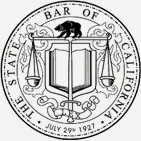 In a 74-page decision last Thursday, October 22, the California Court of Appeal upheld the lower court’s grant of preliminary injunction that “restrains Uber and Lyft from classifying their drivers as independent contracts.” The People of the State of California v. Uber Technologies, Inc., et al. (2020) 2020 Cal. App. LEXIS 988, 2020 WL 6193994.
In a 74-page decision last Thursday, October 22, the California Court of Appeal upheld the lower court’s grant of preliminary injunction that “restrains Uber and Lyft from classifying their drivers as independent contracts.” The People of the State of California v. Uber Technologies, Inc., et al. (2020) 2020 Cal. App. LEXIS 988, 2020 WL 6193994.
The current law governing whether a worker is an employee or an independent contractor comes from a 2018 California Supreme Court case, Dynamex Operations W. v. Superior Court (2018) 4 Cal. 5th 903, which the California legislature codified into Labor Code Section 2775. Section 2775 establishes a presumption that one who provides labor or services for payment is an employee. (California Labor Code § 2775, subd. (b)(1).) This presumption may be rebutted if “the hiring entity” establishes multiple elements referred to as the “ABC test.”


 Many entrepreneurs will organize their business into a limited liability company (LLC) or similar entity to obtain limited liability protections. Lawyers counseling these business owners often recommend that their clients observe corporate formalities by following such practices as conducting regular corporate meetings, taking minutes of those meetings, and approving resolutions of important actions taken by the LLC. Maintaining limited liability is an important reason for a company to follow corporate formalities and maintain formal records, but there are other important reasons to maintain these practices that are even more basic.
Many entrepreneurs will organize their business into a limited liability company (LLC) or similar entity to obtain limited liability protections. Lawyers counseling these business owners often recommend that their clients observe corporate formalities by following such practices as conducting regular corporate meetings, taking minutes of those meetings, and approving resolutions of important actions taken by the LLC. Maintaining limited liability is an important reason for a company to follow corporate formalities and maintain formal records, but there are other important reasons to maintain these practices that are even more basic. On March 18, 2020, the Families First Coronavirus Response Act was signed into law. This new law expands many employers’ obligations to provide sick leave to employees impacted by COVID-19.
On March 18, 2020, the Families First Coronavirus Response Act was signed into law. This new law expands many employers’ obligations to provide sick leave to employees impacted by COVID-19. Businesses of all kinds will be forced to keep their doors closed in the coming weeks in the face of COVID-19 and the orders from Governor Newsom [1] and the Santa Clara County Health Officer. [2]
Businesses of all kinds will be forced to keep their doors closed in the coming weeks in the face of COVID-19 and the orders from Governor Newsom [1] and the Santa Clara County Health Officer. [2]  On December 30, 2019, Uber and Postmates filed a lawsuit to stop enforcement of AB-5, California’s new legislation that makes it more difficult to classify workers as independent contractors.
On December 30, 2019, Uber and Postmates filed a lawsuit to stop enforcement of AB-5, California’s new legislation that makes it more difficult to classify workers as independent contractors. Employees in California are protected by the Workers’ Compensation Act (WCA) which governs “compensation given to California employees for injuries incurred in the course and scope of their employment.” Charles J. Vacanti, M.D., Inc. v. State Comp. Ins. Fund (2001) 24 Cal.4th 800, 810. All employers except the state must secure the payments of compensation by either carrying workers’ compensation insurance or self-insuring. In a recent case, the San Mountain Empire School District was self-insured, but had also contracted for excess policy insurance. In the case of the Mountain Empire School District, its excess insurer ran out of money.
Employees in California are protected by the Workers’ Compensation Act (WCA) which governs “compensation given to California employees for injuries incurred in the course and scope of their employment.” Charles J. Vacanti, M.D., Inc. v. State Comp. Ins. Fund (2001) 24 Cal.4th 800, 810. All employers except the state must secure the payments of compensation by either carrying workers’ compensation insurance or self-insuring. In a recent case, the San Mountain Empire School District was self-insured, but had also contracted for excess policy insurance. In the case of the Mountain Empire School District, its excess insurer ran out of money. The Ninth Circuit has expanded the scope of claims that are subject to arbitration clauses to include racial discrimination claims under 42 U.S.C. Section 1981. Lambert v. Tesla, 2019 U.S. App. LEXIS 14591.
The Ninth Circuit has expanded the scope of claims that are subject to arbitration clauses to include racial discrimination claims under 42 U.S.C. Section 1981. Lambert v. Tesla, 2019 U.S. App. LEXIS 14591. The California Corporations Code requires founders to follow specific procedures and file specific forms before the entity comes into existence. For example, articles of incorporation must be filed with the Secretary of State in order to create a corporation. In contrast, a general partnership can be formed without any document at all.
The California Corporations Code requires founders to follow specific procedures and file specific forms before the entity comes into existence. For example, articles of incorporation must be filed with the Secretary of State in order to create a corporation. In contrast, a general partnership can be formed without any document at all.




